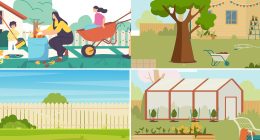Those most likely to be harmed are being sent to places with the least oversight. It’s vital all alternative provision is registered
- Amanda Spielman is Ofsted chief inspector
Every child, regardless of their background, deserves a good education and the chance to reach their full potential. But some children – often the most vulnerable – just don’t get that chance.
While most children have been back in the classroom since September, some children with behavioural, emotional or health problems are instead in “alternative provision” – also known as AP – instead of a regular school. AP exists for children who struggle with conventional education, or whose needs cannot be met by mainstream schools. Sometimes it is a useful short-term fix for excluded pupils, serving a valuable purpose in re-engaging them in education; sometimes it does a good job of teaching young people right through to age 16. But I am concerned that it is sometimes used just to move on children whose needs and behaviour are deemed too challenging, with little thought for their futures.
Amanda Spielman is Ofsted chief inspector




